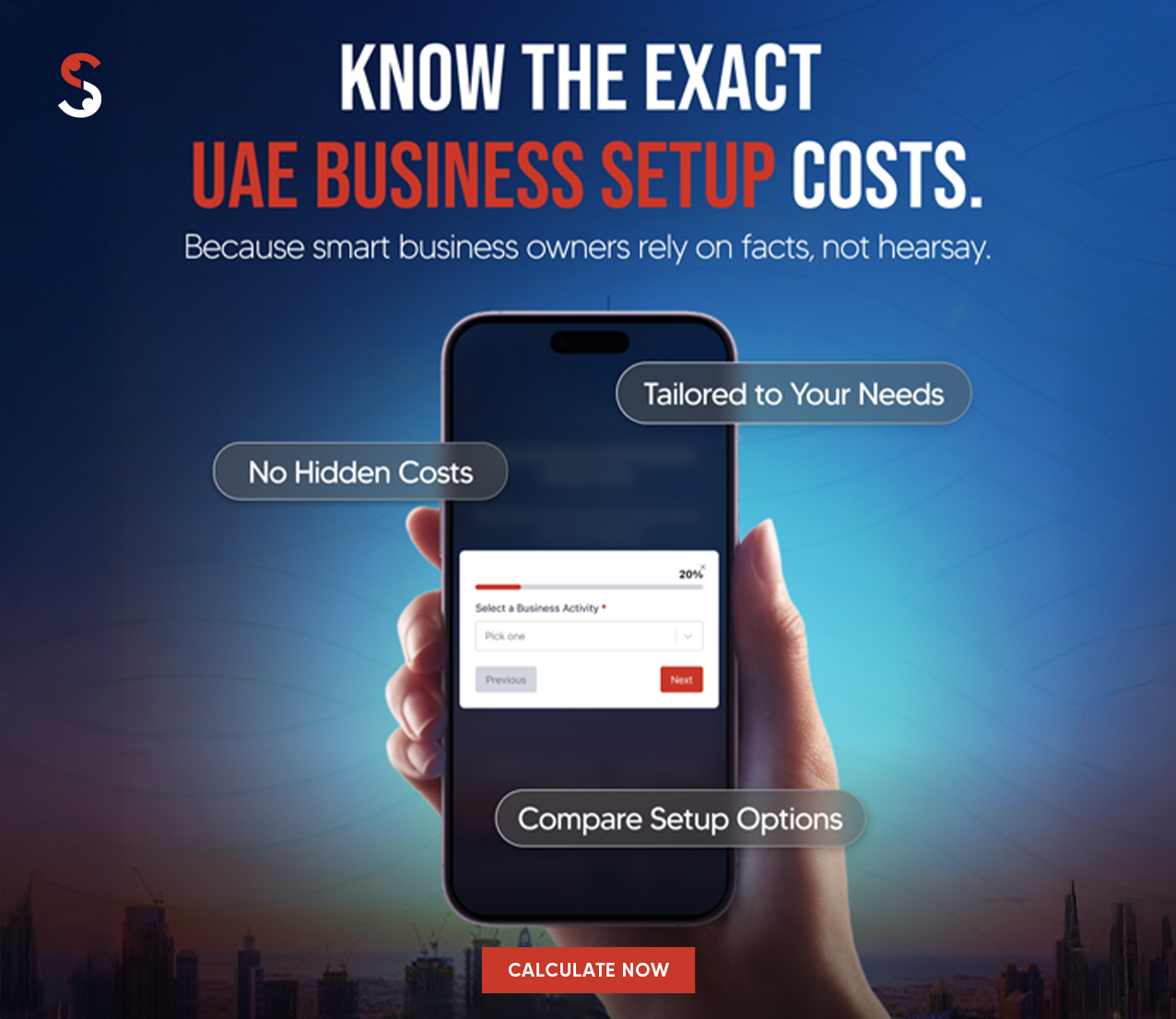Dubai is well known for many things – myriads of hotels, cosmopolitan lifestyle, mesmerising beaches, top-notch infrastructure, and seamless connectivity. But if there is something that leaves all of this behind, it is the oil and gas trading business in Dubai.
The oil and gas trading business in Dubai is the most lucrative business sector in the UAE. Abu Dhabi is the biggest exporter after Saudi Arabia and Russia. Furthermore, countries like India, China, and other Asian countries import crude oil from the UAE. Also, you can export oil and gas to the rest of the world from the UAE. ADNOC is the Middle East’s largest national drilling company by rig fleet size and the region’s first provider of Integrated Drilling Services. It is a crucial link in the upstream value chain, enabling ADNOC to increase oil production to 5 million barrels per day by 2030.
This sector is critical to UAE’s economy, accounting for nearly 30% of the GDP. Furthermore, the oil and gas trading industry accounts for 13% of UAE’s total export value, making up a large part of the revenue. As a result, the UAE government is trying to develop unconventional oil and gas production to become self-sufficient in gas supplies by 2030.
This blog will walk you through all you need to know about the oil trading business – process, costs, and rules.
What is Oil Trading in the UAE?
Oil trading in the UAE refers to the buying, selling, and distribution of crude oil, refined petroleum products, and related energy commodities within the country and international markets. As one of the world’s leading oil producers, the UAE plays a significant role in the global energy sector, with Dubai and Abu Dhabi being key hubs for oil trade.
The oil business in UAE is not limited to extraction; it also involves refining, storage, shipping, and marketing of petroleum products. Dubai, although not as oil-rich as Abu Dhabi, has positioned itself as a strategic trading centre, offering strong infrastructure, free zones, and access to global shipping routes. Many companies in the oil business in Dubai focus on trading petroleum products, lubricants, and derivatives, serving markets in Asia, Africa, and Europe.
The UAE’s oil trading industry benefits from:
- World-class ports like Jebel Ali and Fujairah, which support storage and re-export.
- Government support and favourable business regulations.
- A strong network of oil trading companies and energy service providers.
In short, oil trading in the UAE combines the nation’s vast resources, advanced logistics, and prime location to connect global energy supply and demand.
Why Choose Dubai for Your Oil Trading Business?
Dubai has established itself as one of the world’s most dynamic hubs for oil trading, due to its prime location, advanced infrastructure, and pro-business policies. Situated between major oil-producing nations in the Middle East and key global markets in Asia, Europe, and Africa, Dubai offers unparalleled access to international trade routes.
The oil business in Dubai thrives on the city’s world-class logistics facilities, such as Jebel Ali Port and Dubai International Airport, which ensure smooth import and export operations. The presence of free zones like the Dubai Multi Commodities Centre (DMCC) provides tax benefits, 100% foreign ownership, and simplified licensing for oil trading companies.
Moreover, the UAE government’s stable regulatory framework, transparent legal system, and investor-friendly policies make it easier to set up and operate an oil trading business in Dubai. The emirate also offers networking opportunities with major players in the oil business in the UAE, from producers and refiners to traders and distributors.
Dubai is not just a place to trade oil; it’s a global gateway where business growth meets strategic advantage.
Types of Oil Businesses in Dubai
Dubai’s energy sector is a major contributor to the UAE’s economy, and the oil business in UAE offers diverse opportunities for investors and entrepreneurs. Although Dubai’s oil reserves are smaller compared to Abu Dhabi, the Dubai oil business thrives through the downstream, midstream, and related service industries. Here are the main types of oil business in Dubai you can explore:
- Oil Exploration and Production: Companies are engaged in the search, drilling, and extraction of crude oil. This is capital-intensive but forms the backbone of the oil business in UAE.
- Oil Refining: Businesses that process crude oil into valuable products such as gasoline, diesel, and jet fuel are involved in the refining process. The Dubai oil business has advanced refining facilities to meet both local and international demand.
- Oil Trading and Distribution: Import, export, and wholesale trading of crude oil and petroleum products. This is one of the most profitable segments of the oil business in Dubai, leveraging the city’s global trade connections.
- Petrochemical Manufacturing: Production of chemicals derived from petroleum is used in industries like plastics, fertilisers, and pharmaceuticals. A fast-growing sector in the oil business in UAE.
- Oilfield Services and Equipment Supply: Providing drilling equipment, maintenance, engineering, and technical expertise to oil companies. Many investors choose this sector within the Dubai oil business for its steady demand.
- Storage and Logistics: Storage terminals, pipelines, and shipping services to transport oil products. Dubai’s strategic location makes it a hub for this type of oil business in UAE.
- Renewable and Hybrid Energy Solutions: Businesses integrating oil with cleaner energy sources to meet sustainability goals—an emerging area in the Dubai oil business landscape.
Types of Oil Used for Trading in Dubai
The Dubai oil business is one of the most dynamic sectors in the region, attracting traders from across the globe. In the oil business in UAE, various types of oil are traded depending on market demand, industrial needs, and global pricing trends.
The oil business in Dubai involves both crude and refined products, making it a diverse and lucrative sector for investors. Here are the main types of oil traded in the oil trading business in Dubai:
- Crude Oil: The most traded form, crude oil is the raw petroleum extracted from the ground, later refined into various products.
- Refined Petroleum Products: Includes diesel, gasoline, jet fuel, and kerosene, widely traded to meet the needs of industries and transportation.
- Lubricants: Used in machinery, automotive, and industrial applications, lubricants are a growing segment in the Dubai oil business.
- Liquefied Petroleum Gas (LPG): A versatile fuel for cooking, heating, and some vehicles, LPG holds a stable market in Dubai.
- Fuel Oil: Primarily used in ships and power plants, fuel oil is a significant product in the oil business in UAE.
- Speciality Oils: Includes transformer oils, hydraulic oils, and other industrial-grade oils with specialised applications.
With its prime location, advanced infrastructure, and global connectivity, Dubai remains a central hub for all types of oil trading, making the oil trading business in Dubai a strong investment opportunity.
Key Licenses and Permits for Oil Trading
Starting an oil trading business in the UAE requires obtaining the proper licenses and permits to operate legally and efficiently. The most essential requirement is securing an oil trading license in the UAE, which allows you to import, export, and trade various petroleum products.
Below is a table which will help you understand the key licenses and permits for starting an oil trading business in the UAE:
| License / Permit | License / Permit | Where to Apply |
|---|---|---|
| Oil Trading License | Authorises the import, export, and trading of petroleum products across the UAE. | Department of Economic Development (DED) + relevant free zone authorities |
| Diesel Trading License | Permits businesses to trade diesel within Dubai while meeting safety and environmental norms. | Dubai Economic Department (DED) + Dubai Municipality |
| Additional Environmental Permits | Ensures compliance with environmental and safety regulations for petroleum handling. | UAE Ministry of Climate Change and Environment + local municipality |
| Customs Clearance Permits | Required for cross-border import/export of oil and petroleum products. | Federal Customs Authority |
How to Start Oil Business in the UAE
The UAE is one of the world’s most influential oil hubs, making it the perfect place to establish a profitable oil trading venture. Whether you’re planning to trade crude oil, lubricants, or diesel, setting up a Dubai oil business can open doors to regional and global markets.
From acquiring the right oil trading license in Dubai to setting up storage and logistics, here’s your detailed roadmap to launch an oil trading business setup in Dubai.
Step 1: Identify Your Oil Trading Niche
The oil business in UAE covers multiple categories, and each requires specific permits:
- Crude oil trading
- Diesel trading
- Lubricants & industrial oils
- Petrochemical products
Why it matters: Your chosen category will directly affect the type of oil trading license in the UAE you must apply for.
Step 2: Select the Right Jurisdiction
There are two primary business zones for your oil trading business setup in Dubai:
Mainland Dubai:
- Ideal for trading within the UAE and internationally.
- License issued by the Dubai Department of Economic Development (DED).
Free Zones (like Jebel Ali Free Zone, Dubai Multi Commodities Centre, or Fujairah Free Zone):
- Offers 100% foreign ownership.
- Exempt from import/export duties in most cases.
- Streamlined licensing procedures for the oil trading license in the UAE.
Step 3: Choose Your Business Structure
The most common setups for a Dubai oil business include:
- Limited Liability Company (LLC): Combines flexibility and legal protection.
- Free Zone Establishment (FZE): Perfect for single owners.
- Branch of a Foreign Company: Extends your international operations into Dubai.
Step 4: Apply for the Correct Oil Trading License
To legally operate, you must apply for one of the following:
- Oil Trading License– For trading multiple oil products.
- Diesel Trading License – Specifically for diesel products.
- General Oil Trading License – Broad coverage for oil and gas product trade.
Steps to Apply:
- Submit your application to the DED or free zone authority.
- Provide business documents (passport copies, shareholder details, business plan).
- Pay the license fee.
- Receive your official oil trading license.
Step 5: Secure Additional Approvals
Some oil trading categories require further permissions from:
- Ministry of Energy and Infrastructure: For large-scale oil trading.
- Dubai Municipality: For safety and environmental compliance.
- Civil Defence: For storage and transport safety approvals.
Step 6: Arrange Business Premises & Storage
A fully compliant oil trading business setup in Dubai will need:
- A registered office address.
- A certified storage facility or warehouse for oil products.
- Safety measures (fire suppression systems, ventilation, hazardous material handling).
Step 7: Open a Corporate Bank Account
Opening a corporate bank account is essential for handling large-scale transactions in your oil business in UAE. Banks may require:
- A copy of your oil trading license
- Detailed business plans and contracts.
- Proof of compliance with UAE trade regulations.
Step 8: Set Up Logistics & Supply Chain
To operate a successful oil business in Dubai, you’ll need:
- Reliable transportation partners (tanker trucks, ships).
- Strong supplier relationships in global oil markets.
- A customs clearance strategy for imports/exports.
Step 9: Hire Skilled Personnel
Oil trading is a technical industry, hiring experienced staff in:
- Trade compliance
- Oil storage & handling.
- International shipping & documentation.
Step 10: Launch and Begin Trading
Once your licenses, approvals, and infrastructure are in place, you can:
- Start importing/exporting oil products.
- Expand into regional GCC markets.
- Build a brand in the oil trading business setup in the Dubai sector.
The oil business in the UAE is a gateway to global trade, offering unmatched opportunities for entrepreneurs and investors. With the proper planning, compliance, and the appropriate oil trading license in the UAE, you can establish a thriving presence in this competitive industry.
Working with a professional consultant like Shuraa business setup can make the process of setting up an oil trading business in Dubai faster, ensuring you meet all legal requirements and avoid costly delays.
Documents Required to Start Oil Business in the UAE
Here’s a basic list of documents usually required to start an oil business in the UAE:
- Passport copies
- Visa copies
- Emirates ID copy
- Recent passport-size photographs
- Trade name reservation certificate
- Initial approval certificate
- Memorandum of Association (MoA)
- Lease agreement
- Business Plan
Oil Trading Business Costs in the UAE
Setting up an oil and gas trading business in Dubai or Abu Dhabi typically costs around AED 30,000*, which is the same as obtaining a commercial license in Dubai.
The exact amount may vary depending on factors such as the company’s size, scope of activities, number of visas, and registration fees. Fortunately, the economic department does not impose high activity charges, keeping the setup cost reasonable and making oil trading a potentially profitable venture.
Start Your Oil Trading Business with Shuraa
Abu Dhabi is a preferred location for oil and gas industry-related companies. This is because the activities are concentrated in their region, followed by other places like Dubai. Although the process is simple, getting assistance will be a wise choice because of the strict regulations in this industry.
Shuraa business setup can simplify the process, smoothing out the details and requirements for you. Furthermore, we will assist you with the documentation and application process, ensuring no mistakes ruin your dream of starting an oil trading business in Dubai. All you have to do is get in touch with us.
Frequently Asked Questions (FAQs)
1. Is it profitable to start an oil business in the UAE?
Yes, due to high demand, strategic location, and tax benefits, it can be highly profitable.
2. How to sell oil in the UAE?
Get the required trading license, register your company, and partner with suppliers or distributors.
3. How to get an oil license in the UAE?
Apply through the Department of Economic Development or free zone authority with the necessary documents.
4. What are the benefits of starting an oil business in the UAE?
Tax advantages, global market access, easy logistics, and strong infrastructure.
5. How to start an oil trading company?
Choose a location, get an oil trading, register your company, open a bank account, and start operations.
6. What is the cost of an oil trading license in Dubai?
Around AED 30,000*, depending on the business setup type.
7. Can foreigners own 100% of an oil trading business in the UAE?
Yes, in free zones and certain mainland sectors.
8. Which type of oil can I trade in Dubai?
Crude oil, refined petroleum products, diesel, lubricants, and specialty oils.
9. How long does it take to set up an oil business in Dubai?
Typically 1–3 weeks, depending on approvals and documentation
Disclaimer: The information in this post is intended for general guidance and may change due to updates in UAE laws, regulations, or licensing procedures. For the latest and most accurate details, we recommend consulting with a business setup expert or the relevant government authorities.










